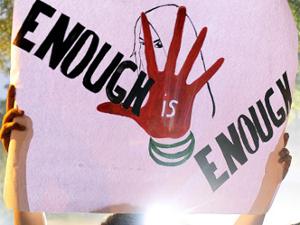New Delhi, Mar 6: An upset government on Thursday served a legal notice on BBC over broadcast of controversial interview of Delhi gang-rape convict and said YouTube had removed the video even as it instructed telecom operators to ensure that it is not available to their subscribers.
The government, in its notice, told the BBC that it has "violated" the agreement of not using the documentary for commercial purpose and for this the British media giant was liable for legal action.
 "No necessary approval was taken by the BBC for the commercial use of the documentary. We have served the notice and waiting for their response. Further course of action is awaited," a Home Ministry official said.
"No necessary approval was taken by the BBC for the commercial use of the documentary. We have served the notice and waiting for their response. Further course of action is awaited," a Home Ministry official said.
The notice was served last evening, before the telecast of the film by the BBC in UK at 10 PM (GMT).
It was served by Director General of Tihar jail Alok Kumar Verma through government standing counsel.
Officials claimed that filmmaker Leslee Udwin had agreed to the condition that the documentary would not be used for commercial purposes. However, she sold the rights of the film to BBC allegedly allowing it for using commercial purpose.
The government also asked video sharing website YouTube to remove the documentary as it is "very sensitive".
In the evening, government sources said YouTube had removed it from its website.
However, the documentary could still be viewed on the site. Officials said it could be still viewed because the almost hour-long video was available on the cache servers.
Sources said many people had downloaded the video before it could be removed from the main server and some of them could be uploading it again, as a result of which it could be still seen.
Officials said the government has also instructed telecom operators to ensure that the video is not available to their subscribers, after reports came that the documentary, which has the interview of the convict Mukesh Singh, was available to mobile broadband users.
Earlier in the day, government said necessary action will be taken as the BBC ignored its advice and broadcast the controversial interview of Delhi gang-rape convict.
Home Minister Rajnath Singh also spoke to Communication and IT Minister Ravi Shankar Prasad asking him to ensure that the video is removed from all social media sites.
BBC aired the documentary, containing the controversial interview of a convict in the December 16,2012 gang-rape despite a Delhi court prohibiting it.





Comments
Add new comment